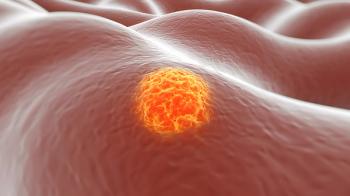
Common Intestinal Worm Drug Shows Promise Against Rare Skin Cancer
In mice with human Merkel cell carcinoma, pyrvinium pamoate significantly reduced tumor growth, potentially offering a new way to treat this aggressive skin cancer.
A medicine already approved by the FDA for treating intestinal worms shows effectiveness against Merkel cell carcinoma, potentially offering new hope for patients with this rare but deadly skin cancer.
Researchers at the University of Arizona Cancer Center, led by Megha Padi, Ph.D., found that a drug called pyrvinium pamoate effectively stops the growth of Merkel cell carcinoma (MCC) through several different ways. Their
“This is a hypothesis, but some people think the reason an antiparasitic agent could be effective against cancers is because tumors are a little bit like parasites in our body,” Padi said in a
MCC is a rare skin cancer, with about 3,000 people
Current treatments for advanced MCC include surgery, radiation, chemotherapy and newer immune therapies. However, these approaches work for only about half of patients.
Researchers found that MCC disrupts a system called Wnt signaling, which cells use to communicate and control how they grow and develop. In this cancer, one type of Wnt signal that encourages cell growth becomes overactive, while another type that helps cells mature and stop dividing is weakened. This imbalance may help the cancer cells keep multiplying. The drug pyrvinium pamoate appeared to restore this balance in lab experiments, which helped slow the cancer’s growth.
Compared with other Wnt-targeting compounds tested in the lab, pyrvinium showed the strongest ability to reverse MCC’s genetic signature. This was evident even at low concentrations, outperforming other agents.
Beyond fixing these communication signals, the drug worked through multiple mechanisms. It activated a natural tumor-fighting protein called p53, disrupted cancer cell energy production and triggered a stress response that leads to cancer cell death.
In mice with human MCC tumors, the drug significantly reduced tumor growth compared with untreated animals. The treated tumors showed decreased levels of proteins that mark actively growing cancer cells.
What makes this drug particularly promising is its activity against both virus-related and sun damage-related forms of MCC. About 80% of MCC cases are associated with a virus called Merkel cell polyomavirus, while the remainder come from sun-induced DNA damage.
This drug has already been approved for testing in a clinical trial for pancreatic cancer patients, suggesting that a safe treatment approach for MCC patients may be possible in the future.
“Further studies are needed to comprehensively characterize the role of Wnt signaling on cancer hallmarks and to optimize treatment protocols for the development of pyrvinium pamoate as a clinically useful drug for Merkel cell carcinoma,” the researchers wrote in the study.
Newsletter
Get the latest industry news, event updates, and more from Managed healthcare Executive.























